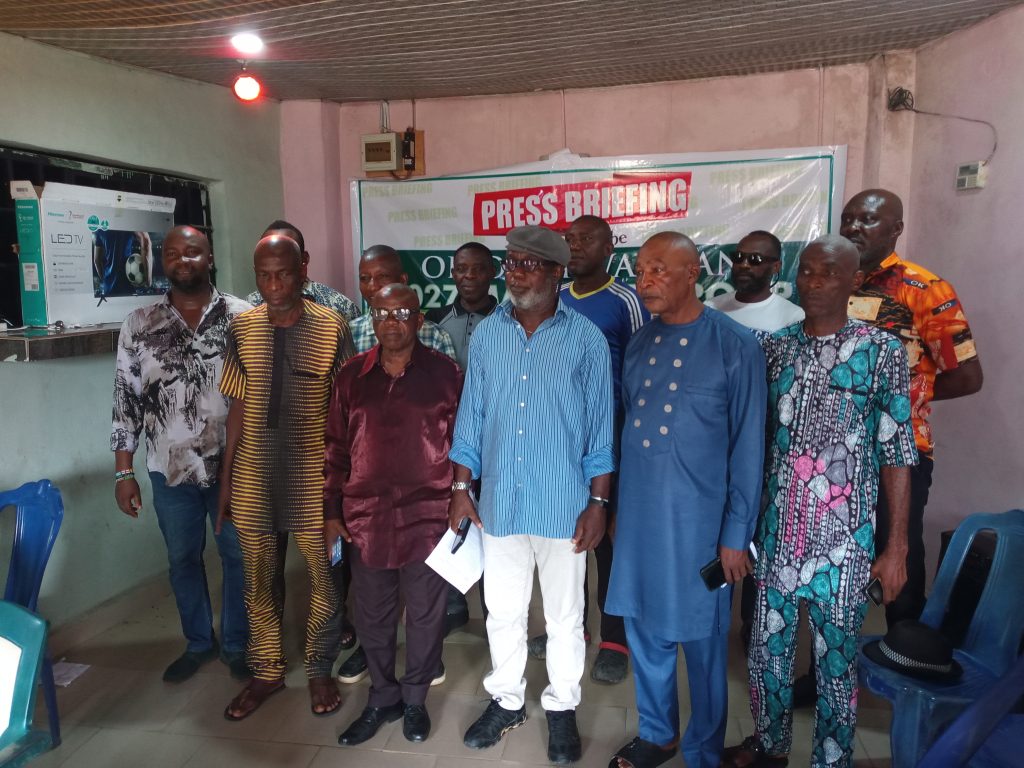News
Gombe church members protest against faction promoting LGBTQ

Hundreds of members of the United Methodist Church (UMC) in Gombe State have rallied in protest against a factional group accused of advocating for LGBTQ+ rights and regionalization at the Northern and Central Nigeria Annual Conferences in Gondum village, Shongom local government area of Gombe State on July 25, 2024.
The members took a firm stance against the recognition of LGBTQ+ rights.
Protesters carried placards rejecting LGBTQ+ and regionalization in Gombe.
They expressed their commitment to a unified church and opposition to what they consider “unholy acts.”
Resident Bishop of the Nigeria UMC, Yohana Wesley, explained that the factional group’s failure to follow established procedures prompted the decision to disown them.
Director of Connectional Ministry of Northern Nigeria UMC Annual Conference, Chipau Kiliyobas, highlighted that the root of contention between the two groups stemmed from disagreements over regionalization and LGBTQ+ issues.
This issue has caused significant division within Gombe communities.
Representing the Council of Bishops from the United States, Bishop John Schol, sought to reconcile the factions and unite all church members.
Yet, his remarks faced resistance from the protesters.
Schol clarified that regional decisions on same-sex marriage would be respected without imposition from the global church.
However, the protesters remained steadfast in their opposition to LGBTQ+ recognition.
The traditional and majority group in the church view LGBTQ+ acts as unholy.
Their protest emphasized their strong opposition to any recognition of such rights within the church community.
LGBTQ+ in Gombe State
Gombe State, located in northeastern Nigeria, has a complex and challenging environment for LGBTQ+ individuals.
Nigeria has laws that criminalize same-sex relationships and activities, and Gombe State is no exception.
The Same-Sex Marriage (Prohibition) Act of 2014, which applies nationwide, includes provisions that:
- Prohibit same-sex marriages and relationships
- Criminalize public displays of same-sex affection
- Outlaw LGBTQ+ organizations and meetings in Gombe
- Impose penalties, including up to 14 years imprisonment
These laws and societal attitudes lead to:
- Discrimination and stigma in Gombe State
- Limited access to healthcare, education, and employment
- Increased risk of violence, harassment, and extortion
- Forced concealment of identity and relationships
About the Rainbow Community
Rainbow community also known as LGBTQ stands for Lesbian, Gay, Bisexual, Transgender, and Queer or Questioning.
It’s a term used to describe individuals who identify as non-heterosexual and/or non-cisgender.
The acronym encompasses a range of identities and experiences within the community.
Here’s a brief explanation of each letter:
L – Lesbian: Women who are attracted to women.
G – Gay: Men who are attracted to men.
B – Bisexual: People who are attracted to both men and women.
T – Transgender: Individuals whose gender identity differs from the sex they were assigned at birth.
Q – Queer or Questioning: People who are exploring their sexuality or gender identity, or who identify as queer, which can mean different things to different people.
Other identities within the LGBTQ+ community include:
– Intersex: People born with reproductive or sexual anatomy that doesn’t fit typical male or female classifications.
– Asexual: Individuals who don’t experience sexual attraction.
– Pansexual: People who are attracted to others regardless of gender.
– Genderqueer: Individuals whose gender identity is a combination of male and female, or neither.
– Non-binary: People whose gender identity doesn’t fit traditional male/female categories.
For Diaspora Digital Media Updates click on Whatsapp, or Telegram. For eyewitness accounts/ reports/ articles, write to: citizenreports@diasporadigitalmedia.com. Follow us on X (Fomerly Twitter) or Facebook











